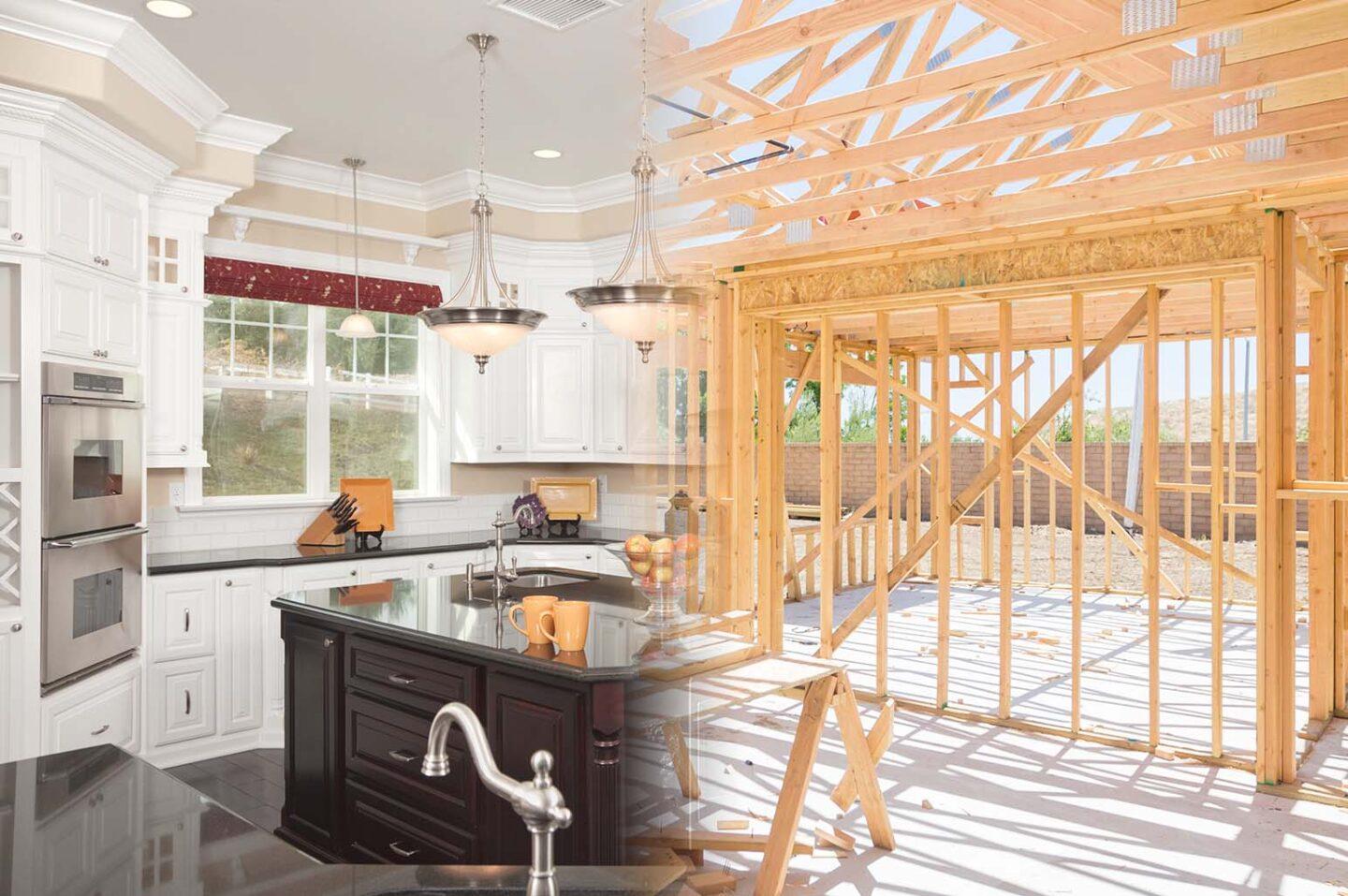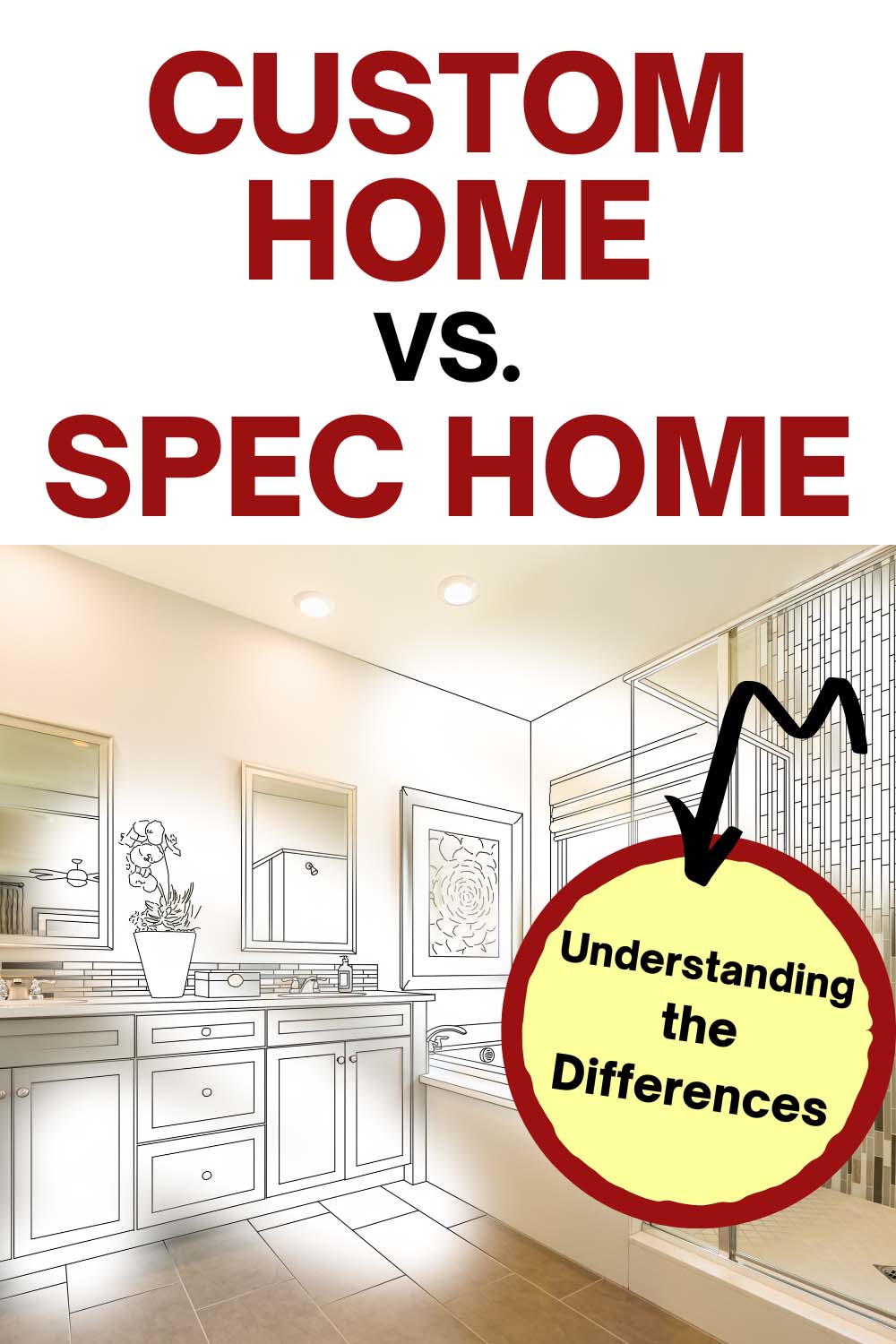Dive into the contrasts between custom homes and spec homes. Learn how each option impacts your homebuying journey and lifestyle choices.

In the realm of homeownership, there are two primary paths one can take: building a custom home or purchasing a spec home. Each option comes with its own set of advantages and considerations, making it crucial for prospective homeowners to understand the key differences between the two.
In this comprehensive guide, we’ll delve deep into the nuances of custom homes versus spec homes, helping you make an informed decision that aligns with your preferences and needs.

What Is a Custom Home?
Let’s start by defining what a custom home is. A custom home is a residence that is designed and built according to the specific preferences and requirements of the homeowner, experts from TimberHaus explain. Unlike spec homes, which are pre-designed and constructed by a developer, custom homes offer unparalleled flexibility and personalization.
Advantages of Custom Homes
- Tailored to Your Preferences: One of the most significant advantages of a custom home is the ability to tailor every aspect of the design to your liking. From the layout and floor plan to the materials used and finishing touches, you have full control over the aesthetic and functional elements of your home.
- Unique and Personalized: Custom homes allow homeowners to create a space that reflects their unique style, personality, and lifestyle. Whether you prefer a modern minimalist design or a cozy traditional aesthetic, you can bring your vision to life in a custom-built home.
- Quality Control: With a custom home, you have more oversight and control over the construction process, ensuring that quality standards are met at every stage. You can choose reputable builders and contractors, select high-quality materials, and oversee the craftsmanship to ensure that your home is built to last.
- Optimized for Efficiency: Custom homes can be designed with energy-efficient features and sustainable practices in mind. From efficient HVAC systems to eco-friendly building materials, you can create a home that not only reduces environmental impact but also lowers utility costs over time.
- Future-Proofing: When building a custom home, you can plan for future needs and trends. Whether it’s incorporating smart home technology, creating flexible spaces that can adapt to changing family dynamics, or integrating aging-in-place features, custom homes can be designed for long-term comfort and functionality.
Considerations for Custom Homes
- Cost: Custom homes tend to come with a higher price tag compared to spec homes due to the customization and quality of materials involved. It’s essential to have a clear budget and work with experienced professionals to ensure that your custom home project stays within financial constraints.
- Timeline: Building a custom home typically takes longer than purchasing a spec home, as it involves the design, planning, permitting, and construction phases. It’s important to be patient and realistic about the timeline, taking into account potential delays due to weather, supply chain issues, or other unforeseen circumstances.
- Decision-Making: With a custom home, you’ll be faced with numerous decisions throughout the design and construction process. From choosing architectural styles and layouts to selecting finishes and fixtures, be prepared to make choices that align with your vision while considering functionality and budgetary constraints.
What Is a Spec Home?
On the other hand, a spec home, short for speculative home, is a property that is built by a developer without a specific buyer in mind. These homes are typically constructed based on market trends, standard designs, and generic features to appeal to a broad range of potential buyers.
Advantages of Spec Homes
- Ready for Move-In: Spec homes are often completed or near completion when they are put on the market, making them ideal for buyers who need a quick and hassle-free move-in process. You can skip the lengthy construction phase and settle into your new home sooner.
- Lower Decision-Making Burden: Unlike custom homes, spec homes come with pre-determined designs, layouts, and finishes chosen by the developer. This can be advantageous for buyers who prefer not to be overwhelmed by endless customization options and decisions.
- Predictable Costs and Timeline: Since spec homes are already built or nearing completion, buyers have a clearer understanding of the total cost and timeline. There are fewer surprises or uncertainties compared to custom home projects, making budgeting and planning more straightforward.
- Showcase of Features: Developers often showcase the best features and upgrades in spec homes to attract potential buyers. This means you may get to enjoy premium amenities and modern conveniences without having to upgrade or customize extensively.
Considerations for Spec Homes
- Limited Customization: While spec homes may offer some degree of customization in terms of finishes or minor modifications, they lack the level of personalization found in custom homes. If you have specific design preferences or unique requirements, a spec home may not fully meet your expectations.
- Quality Variation: The quality of spec homes can vary depending on the developer and construction practices. It’s essential to research the reputation of the builder, inspect the home thoroughly, and request warranties or guarantees to ensure quality and reliability.
- Market Trends: Spec homes are often built based on current market trends and preferences. While this can be advantageous in terms of modern features and designs, it’s important to consider whether the home will meet your long-term needs and lifestyle preferences.
Making the Choice
Now that we’ve explored the differences between custom homes and spec homes, how do you decide which option is right for you? Here are some key factors to consider:
- Personalization: If you prioritize personalized design, unique features, and full control over every aspect of your home, a custom home may be the best fit for you. However, if you prefer convenience, quicker move-in, and fewer decision-making responsibilities, a spec home could be more suitable.
- Budget and Timeline: Consider your budgetary constraints and timeline requirements. Custom homes generally involve higher costs and longer timelines, while spec homes offer more predictability in terms of costs and move-in dates.
- Long-Term Vision: Think about your long-term vision for homeownership. Do you envision staying in the same home for many years, requiring specific features and functionality tailored to your lifestyle? A custom home can provide the longevity and customization you seek. On the other hand, if you value flexibility or anticipate potential relocations in the future, a spec home might be a more practical choice.
- Quality and Assurance: Assess the quality standards, reputation of builders, and level of assurance offered by each option. Custom homes allow for greater oversight and control over quality, while spec homes require thorough research and due diligence to ensure satisfactory construction and reliability.
In Conclusion
In the realm of custom homes versus spec homes, there is no one-size-fits-all answer. The decision ultimately hinges on your priorities, preferences, budget, and long-term vision for homeownership. Whether you opt for the personalized luxury of a custom home or the convenience of a ready-to-move-in spec home, conducting thorough research, working with reputable professionals, and carefully evaluating your needs will guide you toward making the right choice. By understanding the differences between custom homes and spec homes, you can embark on your homeownership journey with confidence and clarity.
